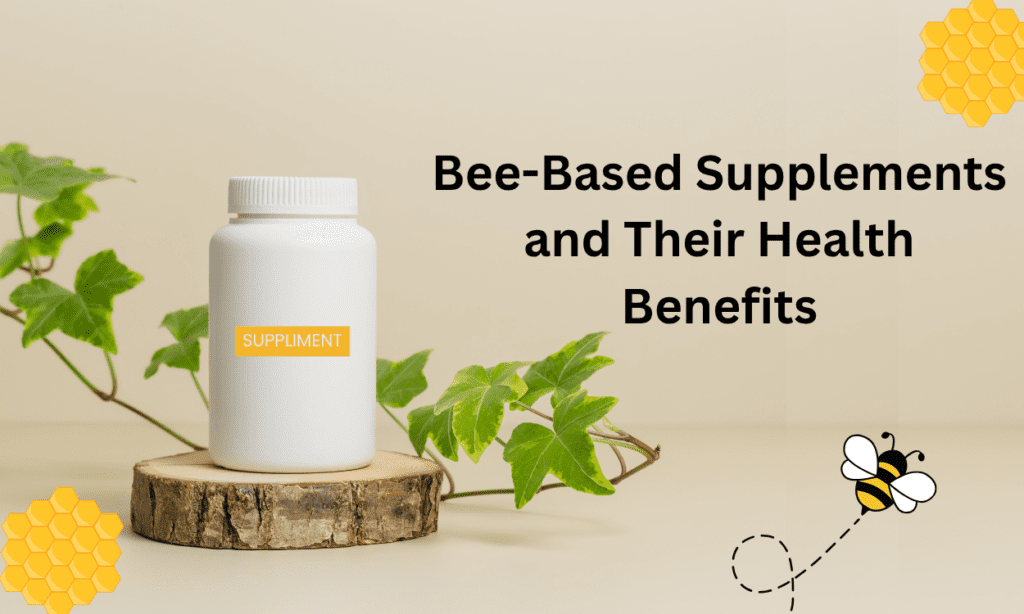

Bee-Based Supplements and Their Health Benefits
Let’s be honest—bees are tiny, but their impact on our health is massive. Bee-based supplements are creating a buzz (pun totally intended) in the world of wellness, and for good reason. These products, harvested straight from hives, are loaded with nutrients and powerful compounds that can supercharge your health naturally.
What Are Bee-Based Supplements?
Bee-based supplements are natural products derived from various substances bees produce—like pollen, royal jelly, propolis, and honey. These supplements are packed with vitamins, enzymes, amino acids, and antioxidants. Think of them as nature’s multivitamin—but tastier.
A Brief History of Bee Products in Wellness
Humans have been using products derived from bees for thousands of years. From ancient Egypt to Ayurveda, bee-based remedies were prized for healing, energy, and even beauty. Fast forward to today, and these golden goodies are still going strong in health circles across the globe.
Types of Bee-Based Supplements
Bee Pollen
Collected by bees from flowers, bee pollen is rich in proteins, vitamins, and antioxidants. It’s often dubbed as “nature’s perfect food.”
Royal Jelly
This milky secretion is what turns a regular bee into a queen bee—literally. It’s a powerhouse of B-complex vitamins and unique fatty acids that support skin, brain, and hormonal health.
Raw Honey and Manuka Honey
Not just sweeteners—these honeys have antibacterial and healing properties. Manuka honey is especially valued for its medicinal properties and health benefits.
Propolis
Bees use this resinous mixture to seal and protect their hives. For humans, it provides antimicrobial, anti-inflammatory, and immune-boosting benefits.
Bee Venom
Bee venom, commonly used in apitherapy, is recognized for its anti-inflammatory and pain-relieving properties. It’s often found in topical creams and injectable treatments for arthritis.
Nutritional Profile of Bee Supplements
Vitamins and Minerals
You’ll find vitamins B1, B2, B6, C, and E—plus calcium, magnesium, zinc, and selenium—in most bee products.
Amino Acids and Enzymes
Royal jelly and pollen provide essential amino acids that the body cannot produce independently. Enzymes also support better digestion and metabolic function.
Antioxidants and Bioactive Compounds
Bee products are full of flavonoids and polyphenols—compounds that fight oxidative stress and reduce chronic disease risk.
Health Benefits of Bee-Based Supplements
Propolis and raw honey possess antimicrobial and antiviral properties that can help prevent colds, flu, and infections.
Bee venom and propolis are known to ease inflammation—making them helpful for arthritis and muscle pain.
Royal jelly promotes collagen production and cell regeneration, giving your skin a natural glow and reducing wrinkles.
Bee pollen is an excellent pre-workout supplement. It provides a natural energy surge without caffeine crashes.
Royal jelly has neuroprotective properties. It may help with memory, focus, and even symptoms of anxiety and depression.
Thanks to its bioactive compounds, royal jelly may help support hormonal regulation in both men and women.
How to Use Bee-Based Supplements
Daily Dosage Recommendations
- Bee pollen: 1-2 teaspoons/day
- Royal jelly: 300–6,000 mg/day (varies by form)
- Propolis: 500–1,000 mg/day
- Always consult your doctor first, especially if pregnant or taking medication.
Forms Available
These supplements come in:
- Capsules
- Powders
- Tinctures
- Raw form (especially honey and pollen)
Best Time to Consume
Morning is usually best—especially on an empty stomach for maximum absorption.
Potential Side Effects and Allergies
Common Reactions to Watch Out For
Some people may experience:
- Swelling
- Itching
- Dizziness
- Gastrointestinal issues
Who Should Avoid Bee Products?
- Individuals with bee or pollen allergies
- People on blood thinners or immunosuppressants
- Pregnant or breastfeeding women (unless doctor-approved)
Buying Guide: What to Look For in Bee Supplements
Purity and Source
Always choose bee products that are labeled raw, unfiltered, or unprocessed. Know where your product is sourced from—local beekeepers are often a better choice.
Organic vs Non-Organic
Organic products reduce your risk of pesticide exposure. Look for USDA Organic or ECOCERT certifications.
Trusted Brands and Certifications
Stick with brands that offer:
- Third-party lab testing
- Clear ingredient lists
- Transparent sourcing practices
Sustainable Beekeeping and Ethical Harvesting
How It Affects Product Quality
Bee health = better supplements. Bees that are stressed or poorly managed produce lower-quality products.
Supporting Bee Conservation
By buying from ethical brands, you’re also helping save the bees—a win-win for you and the planet.
Conclusion
Bee-based supplements are not just another wellness trend—they’re timeless treasures from nature. Whether you’re looking to boost energy, sharpen your mind, or improve your skin, there’s a bee product out there for you. Just remember to start slow, do your research, and choose quality over hype.
FAQ
1. What is the best bee-based supplement for energy?
Bee pollen is hands down one of the best natural energy boosters thanks to its protein and B-vitamin content.
2. Are bee supplements safe for kids?
In small amounts and under guidance, yes. However, avoid honey for infants under 1 year due to botulism risk.
3. Can bee products help with allergies?
Local raw honey may help desensitize the body to pollen over time, though scientific evidence is still limited.
4. How long does it take to see results from royal jelly?
Most users report noticeable results—especially in skin and energy—within 2 to 4 weeks of consistent use.
5. Are bee-based supplements vegan?
Technically, no. Bee products are animal-derived and not considered vegan by most definitions.